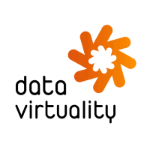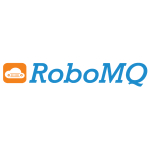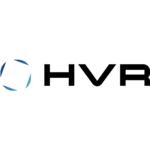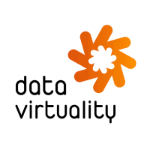TechnologyCounter provides genuine, unbiased real user reviews to help buyers make informed decisions. We may earn a referral fee when you purchase through our links, at no extra cost to you.
List of 15 Best Integration Software
Showing 1 - 15 of 113 productsTidio is one of the leading communication platforms for businesses looking to enhance their customer support and increase conversions. With its user-friendly interface and wide range of features, Tidio makes it easy for companies to engage with their...Read Tidio Reviews
Leadpages is a and user-friendly landing page builder, designed to help businesses of all sizes generate high-quality leads and boost conversion rates. With its intuitive drag-and-drop editor, extensive library of templates, features, Leadpages makes...Read Leadpages Reviews
Freshmarketer is an innovative software that empowers marketing teams to provide customized customer experiences throughout their entire journey. It offers valuable insights into customer behavior and engagement, allowing you to create personalized...Read Freshmarketer Reviews
Oracle Data Integrator is a data integration tool that empowers businesses to seamlessly integrate diverse data from various sources into a unified data model. With its intuitive interface and robust features, Oracle Data Integrator simplifies the pr...Read Oracle Data Integrator Reviews
Data Virtuality LDW is a data integration software that seamlessly connects all your data sources, delivering real-time insights and empowering better decision-making. With its advanced capabilities and user-friendly interface, Data Virtuality LDW st...Read Data Virtuality LDW Reviews
Zoho Flow is a Integration Software designed for Agencies and Enterprises. It offers an all-in-one solution for Web App, with features such as Dashboard, ETL, Metadata Management, Multiple Data Sources, and Web Services. This software streamlines th...Read Zoho Flow Reviews
SSIS PowerPack, a powerful and versatile solution for data integration and transformation. Designed to streamline processes and increase efficiency, this tool offers a variety of features and functionalities to make managing data easier than ever bef...Read SSIS PowerPack Reviews
Shufti Pro is an advanced software that utilizes the latest technology to provide unparalleled identity verification and fraud prevention solutions. With its secure platform, it helps businesses worldwide to streamline their customer onboarding proce...Read Shufti Pro Reviews
Connect iPaaS is a integration platform that allows you to seamlessly connect all your applications and automate your workflows effortlessly. With its user-friendly interface and vast range of customizable features, Connect iPaaS simplifies your busi...Read Connect iPaaS Reviews
Hull, a dynamic software designed to revolutionize your business operations. Streamline your workflow, increase efficiency, and elevate your company with our innovative features. Say goodbye to tedious tasks and hello to a seamless and powerful softw...Read Hull Reviews
zzBots is a software revolutionizing the world of automation. With its advanced capabilities, zzBots takes on tedious tasks and streamlines workflows, freeing up valuable time and resources for businesses to focus on growth and productivity. Discover...Read zzBots Reviews
Fivetran HVR is a top-of-the-line data integration solution that streamlines and automates the process of moving data from various sources to your destination. With its user-friendly interface features, Fivetran HVR simplifies data integration and en...Read Fivetran HVR Reviews
Data Virtuality Pipes is a solution that simplifies the process of data integration for businesses of all sizes. With its seamless connectivity is a data management capabilities, Data Virtuality Pipes empowers companies to make more informed decision...Read Data Virtuality Pipes Reviews
Perspectium is an innovative software that revolutionizes the way businesses manage and synchronize data across multiple platforms. With its advanced technology and seamless integration capabilities, Perspectium offers a reliable solution for data ma...Read Perspectium Reviews
MetaRouter is a reliable and swift customer data management software aimed at server-side functionality. Designed to optimize efficiency, compliance, and management, it limits third-party access to customer data while enhancing the speed and precisio...Read MetaRouter Reviews
- What Is Integration Software?
- Top Reasons Why Businesses Need Integration Software?
- What Are the Top Key Features of Integration Software?
- What Are the Top Benefits of Integration Software?
- What Are the Steps to Choose the Right Integration Software?
- What Are the Types of Integration Software for Different Industries?
- What Are the Technology Trends for Best Integration Software?
- What Are the Deployment Options for Integration Software?
What Is Integration Software?
Integration software is a software solution that facilitates the interconnection of different programs, enabling them to effectively communicate and exchange data. The technique commonly known as 'systems integration' facilitates the independent connection of each application, enabling them to perform distinct functions within a comprehensive system.
In a general sense, integration platform software facilitates the creation of a software layer known as 'middleware', which serves as a conduit for connecting disparate systems. Once the system is configured, the interactions between different components become smooth and user-friendly.
An instance of this is the automated exchange and synchronization of data across disparate databases, the transmission of files between them, or the consolidation of several sources into a unified database. The primary advantages associated with the utilization of integration software encompass enhanced precision, efficiency, and diminished operating expenditures.
The data is consolidated inside a single system, obviating the need for human inputs from disparate sources, resulting in reduced expenditure of time and financial resources.
Furthermore, the exchange of data occurs instantaneously and digitally among many apps, hence mitigating the potential for errors that may arise during manual data input.
In summary, the best integration software serves as a means of establishing connections between various programs within a business, facilitating seamless data transmission between them. This enables enterprises to enhance operational efficiency and cost-effectiveness by eliminating the need for manual intervention.
Top Reasons Why Businesses Need Integration Software?
1. Improved data accuracy and consistency: Integration software plays a crucial role in mitigating the occurrence of human errors and ensuring the provision of precise and reliable data.
2. Increased efficiency and cost savings: The best integration software is a technological solution that obviates the necessity for manual procedures and has the potential to mitigate expenses.
3. Streamlined access to information: Integration platform software facilitates the seamless and expeditious exchange and utilization of data among various departments or systems inside organizations.
4. Improved customer service and satisfaction: Integration software plays a pivotal role in enhancing organizations' comprehension of client requirements and market trends, so enabling them to provide superior services and products.
5. Streamlined business processes: Integration software facilitates the optimization of corporate operations, hence enhancing efficiency and conserving valuable time and resources.
6. Decrease in duplicate data entry: The use of integration software has the potential to decrease the necessity for human data entry, hence enhancing precision and eradicating instances of duplication.
7. Faster data analysis: Integration software enhances the efficiency of data analysis procedures, facilitating prompt processing and analysis of information for enterprises.
8. Integration of legacy systems: The best integration software serves as a means of connecting and harmonizing legacy systems with more contemporary counterparts, facilitating the smooth and efficient exchange of data between them.
9. Enhanced scalability and flexibility: Integration software enables organizations to effectively adapt and expand their operations in a flexible and expeditious manner in response to evolving requirements.
10. Improved collaboration among departments: Integration software facilitates enhanced collaboration among teams, enabling them to operate with greater efficiency by expediting the exchange of data and information.
11. Improved data security and privacy: Integration software offers advanced data security features, hence assisting organizations in safeguarding confidential information.
12. Automation of repetitive tasks: Integration software possesses the capability to automate and optimize labor-intensive activities, such as the input and manipulation of data.
13. Mobile-friendly integration: Integration software enables organizations to conveniently access data through mobile devices, facilitating real-time data retrieval and analysis.
14. Improved decision making: Integration platform software facilitates data-driven decision making by delivering precise and timely information.
15. Visibility and control: The best integration software provides organizations with the necessary means to achieve enhanced visibility and control over their data and systems.
What Are the Top Key Features of Integration Software?
1. Automated Data Exchange: Integration software enables the automated exchange of data between various applications and systems, leading to enhanced efficiency and accuracy in data transfer.
2. Real-time Synchronization: The best integration software facilitates the seamless and instantaneous synchronization of data across many systems, hence obviating the need for manual intervention in data exchange processes.
3. Multi-Platform Connectivity: Integration software possesses the capability to establish connections across numerous programs, irrespective of their respective platforms. This functionality facilitates the smooth exchange of data and promotes collaborative efforts among these apps.
4. Data Mapping & Transformation: Integration platform software encompasses several functionalities, including data mapping and transformation, that empower both IT departments and end users to establish the manner in which data is handled.
5. Security & Compliance: Cloud integration software facilitates the secure and compliant storage and processing of data, encompassing robust authentication methods and adherence to data protection regulations.
6. Access Control: Integration software provides access control capabilities that enable the management of data access and modification according to user roles and permissions.
7. Error Handler & Troubleshooter: Integration software offers a range of functionalities, including error management and troubleshooting, that facilitate the seamless detection and resolution of system faults.
8. Scalability & Performance: The best integration software is specifically developed to accommodate the growing demands of a business. This practice guarantees the achievement of optimal performance and the minimization of latency periods during the exchange of data.
What Are the Top Benefits of Integration Software?
1. Improved Efficiency: Integration software facilitates the automation of many processes, hence enabling the achievement of swifter and more efficient workflows, as well as enhanced levels of accuracy and precision.
2. Reduced Duplication of Effort: The implementation of automation in various processes can effectively mitigate the need for manual duplication of tasks, while enhancing the level of visibility and accuracy for staff involved in these operations.
3. Faster Business Insights: Integration platform software enables enterprises to get real-time insights from data at an accelerated rate.
4. Seamless Connections & Data Ingestion: Cloud integration software effectively automates the process of data entry across several systems, hence obviating the necessity for manual input. This facilitates the establishment of smooth connections and the process of data ingestion, hence empowering enterprises to efficiently and effortlessly get pertinent data.
5. Reduced Costs: The implementation of automation in various processes results in the elimination of manual labor, leading to a subsequent reduction in operating expenses.
6. Improved Performance Metrics: The best integration software facilitates the enhancement of organizational visibility across many processes, enabling the delivery of valuable insights pertaining to performance metrics. This capability can assist firms in identifying and mitigating unforeseen interruptions while also enhancing operational efficiency.
7. Automated Workflows: Integration software offers the capability to generate automatic procedures that notify users in the event of anomalies. The implementation of this approach has the potential to greatly diminish the amount of human labor and time required for the management of jobs that include a substantial amount of data.
8. Improved Reliability: The implementation of automation in various processes enhances their dependability and precision, hence minimizing the occurrence of errors. This capability can facilitate expedited error recovery for enterprises, hence enabling them to maintain compliance.
9. Enhanced User Experience: Cloud integration software plays a pivotal role in augmenting the user experience by facilitating the seamless integration of data into pre-existing systems or applications, hence enabling organizations to do this task swiftly and effortlessly.
What Are the Steps to Choose the Right Integration Software?
1. Identify your needs: Prior to choosing an integration software solution, it is crucial to evaluate the specific types of integrations that need to be accomplished. Please take into account the existing systems, data sources, end-points, and any distinctive use cases that require attention.
2. Research the features of various software packages: Conduct a comprehensive investigation into the range of capabilities provided by different integration software packages, and evaluate their compatibility with the specific requirements of your firm. The features to be considered are ease of use, scalability, reliability, interoperability, security, and affordability.
3. Weigh pros and cons: Please compile a comprehensive inventory outlining the advantages and disadvantages associated with each cloud integration software package under consideration. Assess the comparative significance of each characteristic with regard to its influence on your organizational requirements.
4. Make a selection: After conducting thorough research, carefully evaluating the advantages and disadvantages, and conducting a comprehensive analysis of your requirements, it is advisable to refine your list of the best integration software packages to a limited number of options that align with your specific demands and financial constraints.
5. Implement the integration software: After making a selection, proceed with the implementation of the newly chosen integration program. If deemed necessary, it is advisable to provide training to staff members regarding the utilization of the software, conduct thorough testing and monitoring of the integration solution, and make necessary adjustments to the settings as required.
What Are the Types of Integration Software for Different Industries?
Integration software solutions facilitate the interconnection of disparate data sources within enterprises, hence promoting a more efficient approach to data management and communication. The prevalence of integration software varies between industries, with certain varieties being more commonly utilized.
1. Enterprise Application Integrators (EAI): Enterprise Application Integration (EAI) solutions are employed to effectively automate and optimize the exchange of data among diverse enterprise information technology (IT) systems, including Enterprise Resource Planning (ERP) systems, Customer Relationship Management (CRM) systems, legacy systems, and databases.
2. B2B Integration Platforms: B2B integration platforms serve as tools for the management and facilitation of data interchange among diverse enterprises. These technologies facilitate expeditious and effective communication among companies by employing standardized protocols and data formats.
3. Supply Chain Automation Solutions: Supply chain automation solutions are implemented to enhance the efficiency of supply chain management activities, including inventory planning, demand forecasting, and order processing, by expediting the associated procedures. The implementation of these solutions often entails the utilization of cloud-based technology and the incorporation of several corporate systems to offer a comprehensive perspective of the complete supply chain.
4. Business Process Management (BPM): Corporation Process Management (BPM) solutions are employed to mechanize and enhance the comprehensive procedures linked to operating a corporation, encompassing activities ranging from supply chain management to customer support. Numerous business process management (BPM) solutions offer the capability to link with both conventional and customized applications, enabling enterprises to seamlessly and expeditiously incorporate diverse systems throughout their organizational framework.
5. Data Integration Solutions: Data integration solutions facilitate the ability of enterprises to retrieve, amalgamate, and disseminate data originating from diverse sources. The aforementioned solutions are employed to establish an integrated data platform that may be utilized across many departments and applications.
What Are the Technology Trends for Best Integration Software?
The development of optimal integration software is being propelled by a number of significant technical advancements.
1. Automation: The implementation of automation plays a crucial role in facilitating seamless integration across various systems and applications, hence enhancing overall efficiency. Automation has the capacity to decrease the necessity for manual coding, hence enabling expedited integration timescales.
2. APIs: The utilization of application programming interfaces (APIs) is increasingly gaining popularity as a means for facilitating interaction between two distinct programs. Application Programming Interfaces (APIs) provide the rapid and secure interchange of data between applications.
3. Microservices: Microservices refer to a software architectural approach that involves the decomposition of big applications into smaller, autonomous service components. The objective of this trend is to enhance the ease of maintenance and development of apps.
4. Cloud: Cloud services provide convenient remote access to data and applications. This enhances the efficiency and cost-effectiveness of system and data integration.
5. Big Data: The advent of Big Data has led to the development of integration software that possesses the capability to efficiently handle substantial volumes of data in real-time, hence facilitating the generation of valuable insights.
What Are the Deployment Options for Integration Software?
The selection of deployment choices for integration software is contingent upon the specific platform and architecture of the software. However, potential implementations of The best integration software encompass
1. On-Premises: The integration software is implemented on the client's premises utilizing local resources.
2. Hybrid: The implementation of the integration software utilizing a combination of cloud-based and on-premises resources.
3. Cloud: The integration software is typically deployed in a hosted environment, often facilitated by a cloud provider such as Amazon Web Services or Microsoft Azure.
4. SaaS: Deployment of the integration software through an online subscription service, such as Salesforce or Zoho.
5. Mobile: The implementation of the integration software on a mobile client, specifically an Android device.
Irrespective of the selected deployment type, integration software typically operates by facilitating the exchange and conversion of data among various systems, hence enabling enhanced automation and optimization of operational processes.















